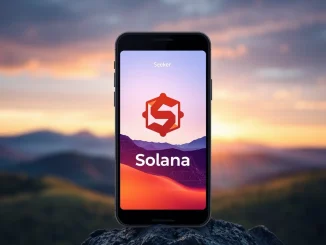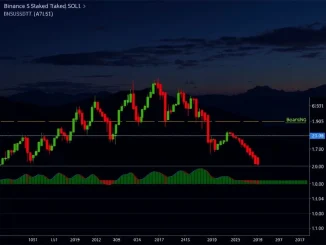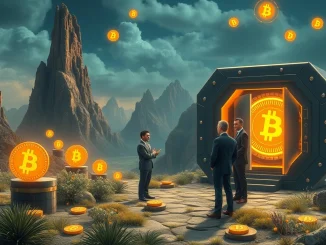
The crypto world is buzzing with news from the Solana Foundation regarding a significant update to its validator delegation program. This move signals a deliberate effort to reshape the landscape of the Solana network, pushing for greater decentralization and reliance on organic, community-driven support.
What’s Changing with Solana Foundation’s Validator Support?
The core of the announcement is a new policy for the Foundation’s delegation program. Here’s a breakdown:
- For every new validator added to the program, three long-standing validators will be removed.
- The primary targets for removal are validators with less than 1,000 SOL in external stake (stake coming from sources other than the Foundation).
- The explicit goal is to decrease the network’s dependence on stake delegated by the Solana Foundation itself.
- This strategy aims to encourage more stake to flow from the broader community directly to validators they support.
This isn’t just a minor tweak; it’s a structural adjustment designed to foster a more robust ecosystem of Solana validators who have earned community trust and stake.
Why is the Solana Foundation Making This Shift?
The motivation behind this change centers on decentralization and network health. A blockchain network is considered more decentralized and resilient when control (in this case, validating transactions and maintaining the ledger) is distributed among many independent participants.
Historically, the Solana Foundation, like many other nascent blockchain projects, used its own stake to help bootstrap validators and ensure network stability in the early days. While necessary initially, a heavy reliance on Foundation stake can centralize power. By reducing this reliance, the Foundation is actively working to:
- Promote true network decentralization.
- Incentivize validators to attract organic stake from users and holders.
- Potentially improve censorship resistance and network security over the long term.
The shift encourages validators to build relationships and trust within the community, rather than relying solely on institutional support.
Who is Impacted by the Validator Delegation Changes?
Blockworks Research estimates that around 150 validators could be affected by this new policy. These are likely the smaller operators who have relied more heavily on Foundation delegation to remain competitive or even operational.
For these validators, the impact could be significant. Losing Foundation stake means a direct reduction in their total staked amount, which in turn reduces their chances of being selected to produce blocks and earn rewards. They will need to actively seek and attract stake from individual token holders and staking pools.
Conversely, this creates an opportunity for high-performing, community-focused validators to potentially attract more stake as the delegation landscape shifts. It puts the power of selecting and supporting validators more firmly in the hands of the Solana network community.
Empowering Community Nodes: What Does This Mean for the Network?
The push towards supporting community nodes is a critical step in Solana’s evolution. Here’s what it signifies:
| Aspect | Impact of Shift to Community Nodes |
|---|---|
| Decentralization | Increased distribution of staking power away from the Foundation. |
| Network Resilience | Potentially stronger against coordinated attacks if stake is widely distributed. |
| Validator Quality | Incentivizes validators to provide reliable service to attract and retain community stake. |
| Community Engagement | Encourages SOL holders to actively participate in securing the network through delegation. |
This strategy requires the community to step up. SOL holders are encouraged to research and delegate their stake to validators who demonstrate strong performance, contribute to the ecosystem, and align with their values. Tools and resources are available within the Solana ecosystem to help users make informed delegation decisions.
Actionable Insights for Validators and Stakers
If you are a Solana validator, especially one with less than 1,000 SOL in external stake, it’s crucial to focus on attracting community delegation. This involves:
- Ensuring high uptime and performance.
- Communicating clearly with potential stakers.
- Participating in community discussions and forums.
- Offering competitive commission rates.
For SOL holders, this is an opportunity to play a more direct role in the network’s governance and security. Research validators, understand their track records, and delegate your stake thoughtfully. Your delegation directly contributes to the health and decentralization of the Solana network.
Conclusion: A Bold Step for Solana’s Future
The Solana Foundation‘s decision to trim certain validator support from its delegation program is a bold, strategic move. While potentially challenging for some smaller operators, it aligns with the long-term vision of a decentralized, community-driven network. By prioritizing community nodes, Solana aims to build a more resilient and robust infrastructure, putting more power and responsibility into the hands of its users and supporters. This shift underscores the network’s maturation and its commitment to becoming truly decentralized.



